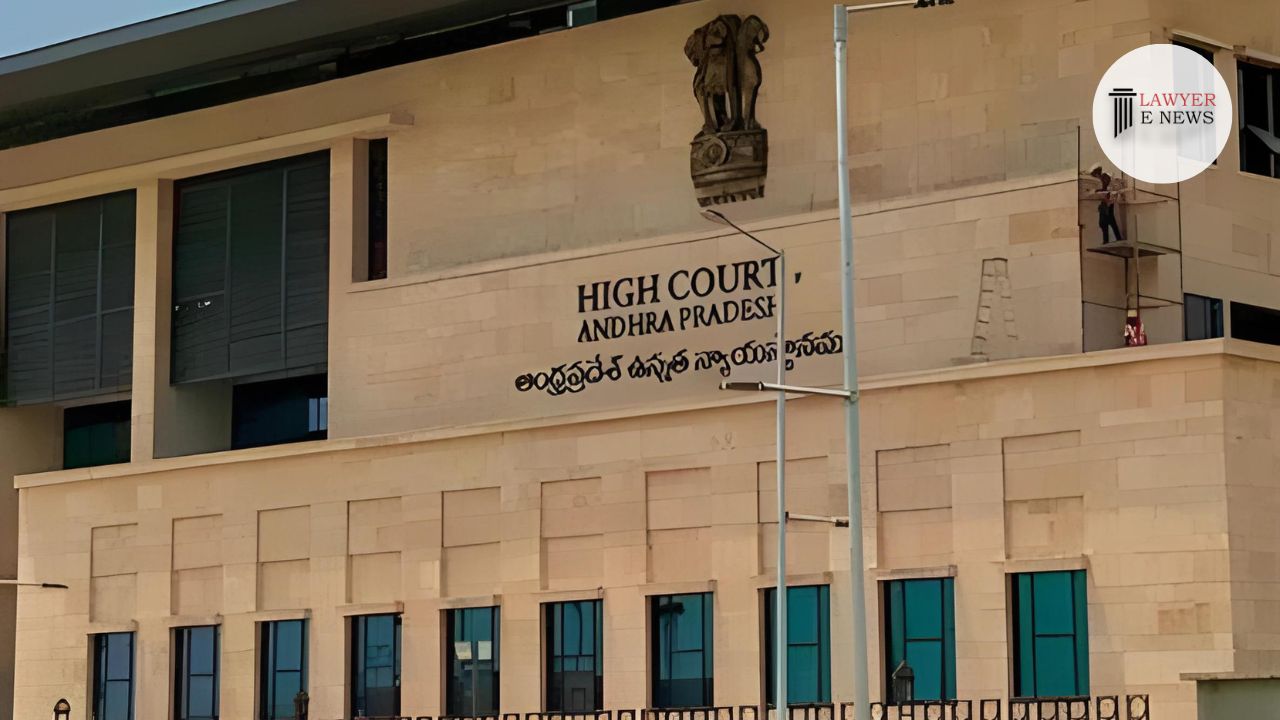-
by Admin
16 February 2026 1:47 PM



"Legislative intent, expressed in plain language, cannot be expanded by judicial interpretation": Andhra Pradesh High Court on Refusal to Register Gift Deeds. Andhra Pradesh High Court holding that the provisions of Section 22-B of the Registration Act, 1908, do not extend to deeds of gift. The ruling sets a clear precedent by reaffirming the limits of statutory interpretation and the scope of administrative discretion.
The respondent, Reddivaripalli Gangireddy Ramana Reddy, executed two deeds of gift on June 30, 2018, transferring 945 and 1305 square yards of land to his wife. The Sub-Registrar refused registration, invoking Section 22-B, which restricts registration of deeds of sale if the property has already been alienated through a registered document. The appellate authority upheld this decision. Aggrieved, Reddy challenged the refusal in the High Court through two writ petitions.
The Single Judge ruled in favor of the respondent, asserting that Section 22-B exclusively applies to deeds of sale and cannot be invoked to deny registration of deeds of gift. The appellants, including the District Registrar, challenged this decision through the present writ appeals.
Section 22-B of the Registration Act prohibits registering a deed of sale for immovable property already alienated unless the earlier registered document is canceled by a court order. The appellants argued that "relating to the sale of immovable property" could be broadly interpreted to include deeds of gift. The Court rejected this contention, with Justice R. Raghunandan Rao stating:
“The language in Section 22-B is clear and unambiguous. It specifically restricts its scope to deeds of sale, as defined under Section 54 of the Transfer of Property Act. A deed of gift, governed by Section 122 of the Transfer of Property Act, is fundamentally distinct.”
The Court emphasized that expanding the provision to include gifts would contradict its legislative intent and noted:
“Where the grammatical construction is clear, and there is no ambiguity, the plain meaning of the statute must prevail.”
The appellants cited Supreme Court judgments to argue for an expansive interpretation of "relating to the sale of immovable property." The High Court disagreed, emphasizing the principle of literal interpretation. Referring to M/s. Doypack Systems Pvt. Ltd. v. Union of India, the Court stated:
“Expressions of expansion, such as ‘relating to,’ cannot override the plain and ordinary meaning of statutory language where the context does not warrant such an expansion.”
The Court examined Rule 30, which requires production of layout approvals before registering deeds of alienation for non-agricultural land. The Court held:
“While Rule 30 permits the Registering Officer to insist on compliance with statutory requirements, it does not empower rejection under Section 22-B. The two provisions operate independently.”
The appellants contended that the respondent lacked ownership rights over the gifted land. The Court observed that such disputes require adjudication based on evidence and ruled:
“Disputed questions of fact, such as ownership and possession, must be decided by appropriate civil courts, not by administrative authorities or this Court.”
The Court upheld the Single Judge’s decision, declaring that deeds of gift cannot be refused registration under Section 22-B. However, it allowed the registering authority to enforce Rule 30 compliance and stated:
“The respondent must obtain necessary layout approvals or declarations of ownership from competent courts before presenting the deeds for registration.”
The Court concluded with a reminder about the sanctity of legislative boundaries:
“Judicial interpretation must respect legislative intent, avoiding unwarranted expansions that disrupt statutory clarity.”
This judgment fortifies the principle that administrative and judicial authorities must adhere strictly to legislative frameworks, avoiding interpretative overreach. It also highlights the importance of distinguishing between legal instruments under property law.
Date of Decision: November 22, 2024
